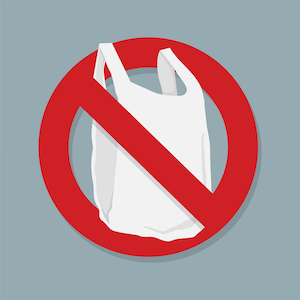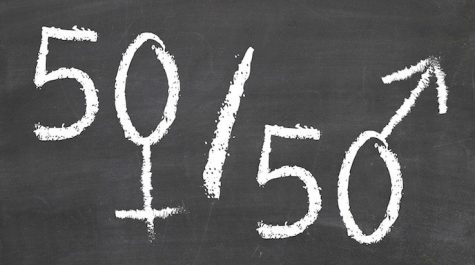Plastic Bags: To Ban or not to Ban?

On December 10, 2018 the Climate Advocates of Bennington went before the Bennington Select Board with a proposal to ban plastic bags in town. It seems to make sense; plastic makes up a large bulk of waste in landfills the world over, and each one takes anywhere between 10 and 1,000 years to fully degrade. Moreover, we use way too many bags, with some estimates as high as 500 billion every year! The vast majority of people will agree that plastic in general is a problem. According to the VTDigger, the word plastic appeared over 350 times in legislation in 2018. Some called for a statewide ban on plastic bags, but it didn’t pass. Instead it has been left up to Vermont towns and counties to make their own decisions on banning the synthetic menace. Brattleboro was the first town to put a ban in place, with Wilmington following suit. Although Bennington heard out the environmental group pushing the ban, the town has yet to take a stance.
The question is would this benefit Bennington? On average, a single use bag is used for 12 minutes before it finds itself stuffed into some forgotten corner in our house, or worse, in the garbage, on its way to the city dump. Since California put their plastic ban in place in 2014, major cities have seen an 89% reduction of plastic bags in storm drains, 60% in rivers, and 59% reduction in residential areas. The city of San Jose also reported a savings of over $600,000 in plastic processing costs. Hawaii has a similar de facto ban in place, which prohibits any bag that is not biodegradable or made from 40% recycled products. Bans in these places make sense as they are both on the ocean and one of the main concerns of plastic usage and litter is its effect on marine life. Some reports claim that over 1,000,000 aquatic animals die every year due to plastic debris in the oceans. Beyond that, they are composed of highly toxic material which leeches into and contaminates the soil on land.
Many companies buy into the threat and encourage consumers to bring their own bags. Price Chopper provides a discount of $0.03 per bag and keeps some near the registers for purchase. Hannaford has a variety of different reusable bags for purchase, with the proceeds going towards several different charities which support local sports teams, schools, food shelves, and the fight against national hunger. Even Walmart displays the bags right at the front door, encouraging shoppers to grab one and do their part in helping the environment. Aldi’s doesn’t even supply plastic bags. If you want them you have to buy them. Or you could just buy a reusable one and never have to worry about the bag cost on your receipt again!
It’s pretty obvious that the major grocery retailers in Bennington are already on the anti-plastic bag ship, so why enact an all out ban? Earlier this month The Looking Glass turned the issue over to you, the students, via a survey on our facebook page, to see how you feel about plastic bag bans, your experience with them, and what you know about the debate behind the issue. All in all, it seems like the results were quite in line with the public’s stance. Most of our students don’t have a ban in their hometown, but almost everyone (save for a single outlier), agreed that plastic bag bans are good for the community, and believe plastic is worse for the environment than paper bags.
Many opponents of plastic bans point to this issue to defend their position. They state that paper and canvas bags, at the end of the day, are much worse for the environment than plastic. Manufacturing paper and canvas products produces more pollutants than plastic however, canvas bags are reusable, while paper bags can be recycled. But how often do people do this? According to the survey, most of the respondents only use their reusable bags when they remember, which is to say that they don’t bring their bags every time they go to the store. What penalty would stores employ in such situation in the wake of a bag ban? Would shoppers then be charged for bags at the register, or would they be welcome to go sans bag? The no bag option is popular at national retailers such as BJ’s, Costco, and Aldi’s. It’s a smart choice for those only grabbing a couple of items, but what about bulk shoppers? Forgetting your bags isn’t really an option if you plan to get your items to your car with minimal hassle.
Here are some ways to remember your reusable bags:
- Keep your reusable bags in the car. After you’ve put your groceries away, put your bags right back in your car; no kitchen counter or hook near the door!
- Store them in the front seat, that way they’re always in your sight when you get to the door.
- Park near the cart return. Most stores have a little reminder to grab your bags.
- Keep a storage container in your trunk. That way if you do forget your bags, you can opt out of plastic without worrying about your groceries rolling all over the place.
Plastic bag bans do wonders for the environment, and towns across the U.S. have found them to be incredibly beneficial in the fight against litter. Can they be inconvenient for the costumer? Maybe, but with incentives, like those offered by the grocery stores in Bennington, really make it worthwhile to get smart about plastic usage. $0.03 adds up fast, so whether or not Bennington passes a plastic bag ban like Brattleboro and Wilmington, we should start acting now, and leave the plastic at the register.






